SABECO leads startup magic
From August 22 to September 13, the union coordinated with the beverage corporation (SABECO) to hold a series of training conferences in the provinces of Can Tho, Khanh Hoa, and Ha Nam in order to help startup businesses and young people doing business in rural areas confidently move forward on their entrepreneurial journey.
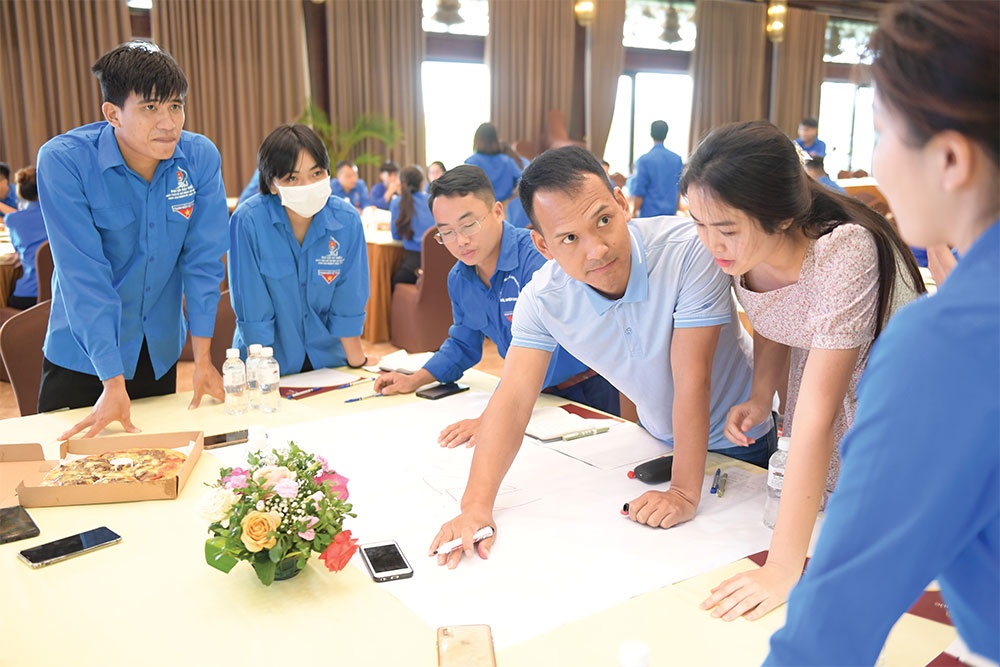 |
The training subjects were young entrepreneurs who are or will be building their own careers. Of these, more than 85 per cent of the students already had startup themes, while the rest are students who plan to one day start a business.
Nguyen Van Dong, who came up with an experiential agriculture project combined with community tourism said, “There are many technology models and software on the market that serve digitalisation. However, when it comes to choosing suitable software, applying it to business activities, and reaching customers to promote products, I have absolutely no experience - hence why I am here.”
With the content of fostering knowledge about entrepreneurship and digital transformation, the conference aimed to create opportunities for young people to be equipped with new skills and connect with investors and partners. Seeking potential in the entrepreneurial journey, at the same time they could also gain closer access to the latest digital transformation technologies today, contributing to improving the effectiveness of youth union members’ business models.
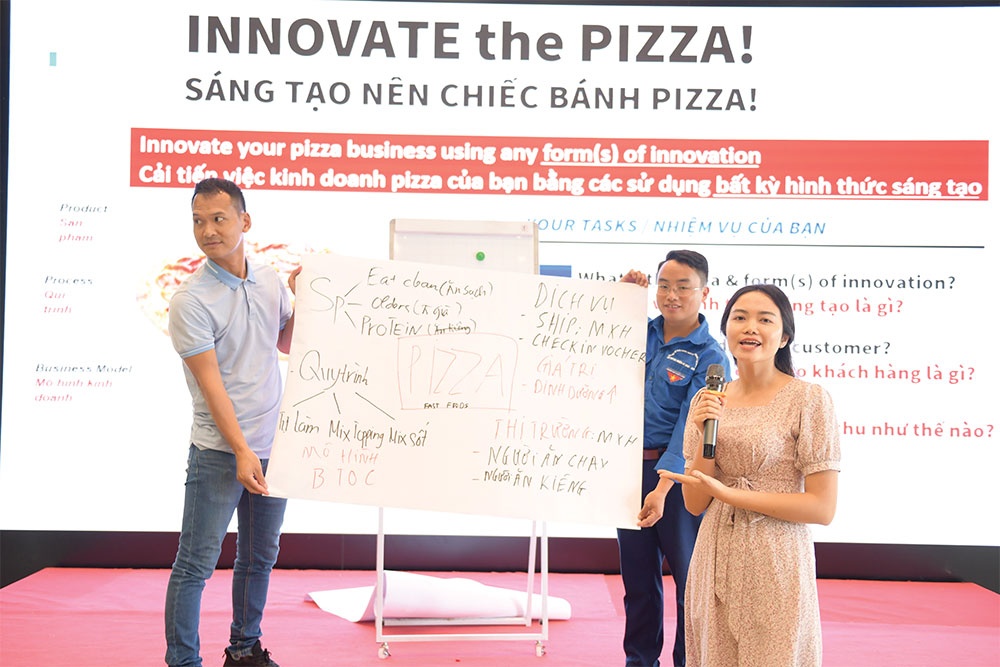 |
| Some students have come with ideas and others are keen to learn more about business |
According to the National Digital Transformation Programme to 2025 and orientation to 2030, the digital economy aims to reach 20 per cent of GDP by 2025 and 30 per cent of GDP by the end of this decade. To realise the plan, digital transformation in businesses is identified by experts as one of the key solutions, in which innovating production to a modern model by applying technology to the entire operating process, from trade to distribution, will help improve both labour productivity and business efficiency.
However, the majority of businesses in Vietnam struggle with this side of operations, and cannot accelerate an effective digital transformation. Survey results of 1,000 businesses released in March by the Vietnam Chamber of Commerce and Industry showed that over 80 per cent of businesses lack digital technology infrastructure and 77 per cent lack professional human resources to access such tech.
The training conferences are part of a series of activities within the framework of long-term strategic cooperation between the Ho Chi Minh Communist Youth Union and SABECO, which started in 2022.
In that time, around 520 startups and young people with economic development models have accessed the programme and had the opportunity to share real-life experiences, thereby strengthening the internal strength of business, as well as becoming equipped with practical skills to realise their desire to earn from agriculture.
Along with the training programme is the semi-final round of the 2023 Rural Youth Entrepreneurship Project competition. After more than four months, the competition received nearly 450 applications from all over the country, and 135 creative business models and ideas have been selected to enter the semi-finals.
The final round is expected to take place in Soc Trang province in November, and the most outstanding models will be announced within the framework of the 2023 Luong Dinh Cua Award event.
According to SABECO, improving the competitiveness of young people in rural areas is part of its commitment to sustainable development, with the goal of encouraging young people to carry out good economic work, contributing to improving their competitiveness and promoting the strong development of Vietnamese brands.
| Venus Teoh Kim Wei, Deputy general director Marketing and Communications, SABECO This year, innovation in business startup has revolved around two core developments: the first is the continued importance of sustainability-focused innovation, and the second is the pervasiveness of the digitalisation process, which affects multiple many dimensions of business operations.
The implications of these two developments are wide-ranging. The quest for sustainability means that companies should not only focus on the profit-seeking aspect of conducting business, but also on ensuring a liveable planet for our children and equitable treatment for all relevant stakeholders. Meanwhile, the inexorable march towards digitalisation will increase people’s comfort, lessen our physical burden, and add more value to the economy. At the same time, these developments pose numerous challenges. Startups will not only have to invest in reducing the environmental and social footprint of their operations, but also in ensuring that this direction is timely transmitted to the consumers. In the digital aspect, startups face many risks, most notably problems with data privacy and intellectual property regulations, which are also the aspects of the digital economy that end consumers are most familiar with. However, these obstacles can be turned into advantages, if innovation is correctly prioritised by new startups. In other words, the early birds in mastering the technological and marketing innovations in the sustainability and digitalisation fields will gain an immense competitive advantage over peers and established companies alike. In order to become the groundbreakers in sustainability and digitalisation innovation, startup entrepreneurs should equip themselves with three qualities First, you must be ready to make changes. For a startup company, even a small change in a single dimension will have an outsize impact on other aspects of doing business. Having the courage to adopt changes is all the more vital in sustainability and digitalisation, where changes in technology and policy are taking place at an unprecedented pace. Second, you must develop a strong core of like-minded, capable and enthusiastic teammates. After all, these people are the ones who directly deploy new technologies, shape the messages of sustainability commitments to the outside world, and interact with stakeholders from all walks of life. Finally, the innovation process can only succeed if it entails respect for the country where you are based in. This is because, while innovation is an ongoing process, the historical, legal and cultural context of the home country remains unchanged and always looming in the background. Consequently, whatever a startup does, it must contribute to promoting the growth of your country and bringing prosperity to its people. |
 | Vietnam’s golden superstars supported through SABECO Saigon Beer-Alcohol-Beverage Corporation and its branding Bia Saigon are not only offering financial assistance for athletes to compete in major events, but also help to conduct a number of community-building initiatives for Vietnamese sports. |
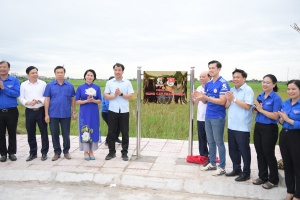 | SABECO supports community projects in Thai Binh and beyond Ho Chi Minh Communist Youth Union and Saigon Beer-Alcohol-Beverage Corporation (SABECO) marked the completion of the first phase of their projects in Thai Binh province on August 5, focusing on sport and sustainable street lighting. |
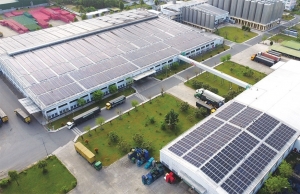 | SABECO lights path for green change Faced with the impacts of climate change, raising awareness about recycling and prioritising products using renewable energy is one of the key factors in the operation of Saigon Beer-Alcohol-Beverage Corporation. |
What the stars mean:
★ Poor ★ ★ Promising ★★★ Good ★★★★ Very good ★★★★★ Exceptional
Related Contents
Latest News
More News
- Masan Consumer names new deputy CEO to drive foods and beverages growth (February 23, 2026 | 20:52)
- Myriad risks ahead, but ones Vietnam can confront (February 20, 2026 | 15:02)
- Vietnam making the leap into AI and semiconductors (February 20, 2026 | 09:37)
- Funding must be activated for semiconductor success (February 20, 2026 | 09:20)
- Resilience as new benchmark for smarter infrastructure (February 19, 2026 | 20:35)
- A golden time to shine within ASEAN (February 19, 2026 | 20:22)
- Vietnam’s pivotal year for advancing sustainability (February 19, 2026 | 08:44)
- Strengthening the core role of industry and trade (February 19, 2026 | 08:35)
- Future orientations for healthcare improvements (February 19, 2026 | 08:29)
- Infrastructure orientations suitable for a new chapter (February 19, 2026 | 08:15)

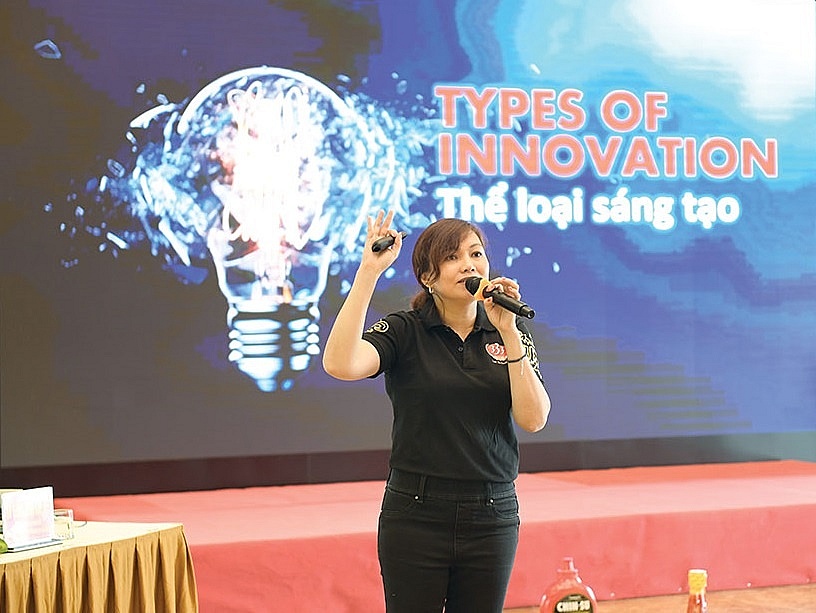
 Tag:
Tag:



















 Mobile Version
Mobile Version